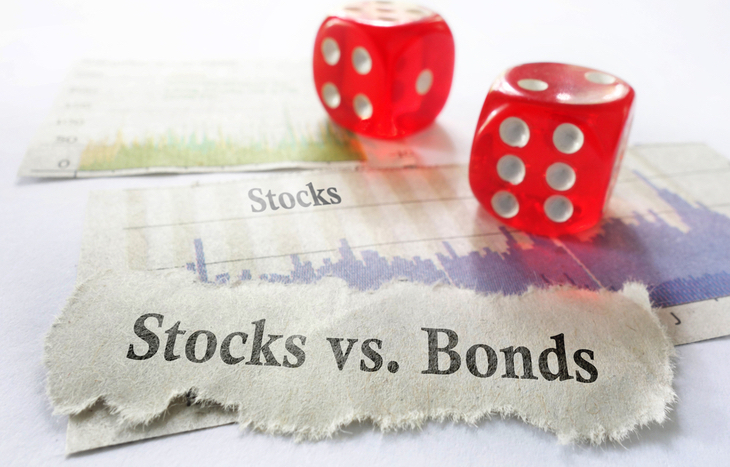Bonds vs. Stocks: Difference Between Bonds and Stocks
There are many folks out there saving for retirement. Some have a 401(k) through their employer. Others might also have a Roth or a taxable investment account through their financial advisor. Over the years, I’ve had countless people tell me, “I have no idea what I’m invested in.” This article will take a closer look at bonds vs. stocks and which is right for you.
Some savers aren’t interested in knowing anything about their investments. That’s why they hire an advisor. On the other hand, some are curious about their investments. Although these curious folks have many questions, it can be overwhelming to figure out where to begin.
If you fall into the curious category, I suggest starting with the basics. Most of your 401(k) options are mutual funds or EFTs. These mutual funds and ETFs represent your share in a basket of bonds and stocks. Same with the investments that you have with your financial advisor.

What is a Bond?
Most people borrow money to buy their homes, cars or other things. Companies also borrow money to run their business. There are many ways for a company to borrow money. One way is to issue bonds.
When a company issues a bond, it borrows money from bondholders. The company promises to pay bondholders interest over the agreed-upon life of the bond. At the end of the bond’s life, the company promises to pay back the borrowed principal.
Typically, mutual funds, EFTs, or individual investors can buy bonds in $1,000 increments.
What is a Stock?
Simply put, stock is ownership in a company. Like a bond, a company is raising capital to run the business. The company sells an ownership stake by selling stock instead of borrowing money.
The company may pay cash to shareholders in the form of dividends. Dividends can change over time, a company may also choose to eliminate or never pay a dividend.
In addition to cash dividends, a stock can benefit from an increase in the stock’s price. The stock price can also decrease. The long-term performance of the company generally determines the stock price.
Bonds vs. Stocks: Which Should You Buy?
Arguably, the most significant difference between bonds vs. stocks is their risk and return profiles. That means there are big differences between an investor’s rate of return and risks involved when investing in either bonds or stocks.
Both bonds and stocks risk that the company will go out of business. In that case, any cash recovered in bankruptcy or asset sale will first go to bondholders. If the bondholders are repaid their principal and interest, the rest goes to the stockholder. Often, bondholders are not fully repaid, and stockholders share become worthless.
There is typically less risk when investing in bonds. The lower risk would likely favor bondholders when the company does poorly.
On the other hand, a business may do better than expected. In this case, a bondholder will receive its interest and principal payments on time. There is no additional benefit for the company’s extra accomplishment. Alternatively, a stockholder will benefit from an increase in the stock price when the company does well over time.
The rate of return on the stock would likely favor stockholders when the company performs well.
Characteristics of Bonds vs. Stocks
Generally speaking, a stock has more risk than a bond. The company’s performance can be hard to estimate, and it can change over time. In addition, the stockholder’s claim on the company is limited to its equity. In other words, profits go to pay bondholders before paying stockholders.
To compensate investors for the additional risk, stocks also have a much higher potential rate of return.
On the other hand, bonds generally carry lower risk. Companies must make their interest and principal payments. Even if the company performs poorly for a while, bondholders are prioritized over stockholders regarding the company’s profits.
Bondholders accept a lower potential return from their investment in return for lower risk.
Bonds vs. Stocks Risks and Inflation
Persistent inflation is an additional risk to any investor. Especially nowadays. For bondholders, investors receive a fixed interest payment. Suppose inflation increases the prices that the investor pays for everyday items. In that case, their fixed interest payments won’t buy as much.
Inflation also increases the costs of running the company. The cost increases can reduce the company’s profit, which could reflect negatively on the price of the stock.
A little inflation each year is a good thing. When inflation is too high or stays elevated for a long time, people and businesses can suffer.
Bonds and Stocks Together
When considering bonds vs. stocks, it can be difficult deciding which one is right for you. The good news is you can invest in both. Many financial advisors suggest holding a diversified portfolio of bonds and stocks.
Investing in both bonds and stocks can allow an investor to pinpoint the right mix. The right combination ensures the investor is comfortable with risk and potential return.





